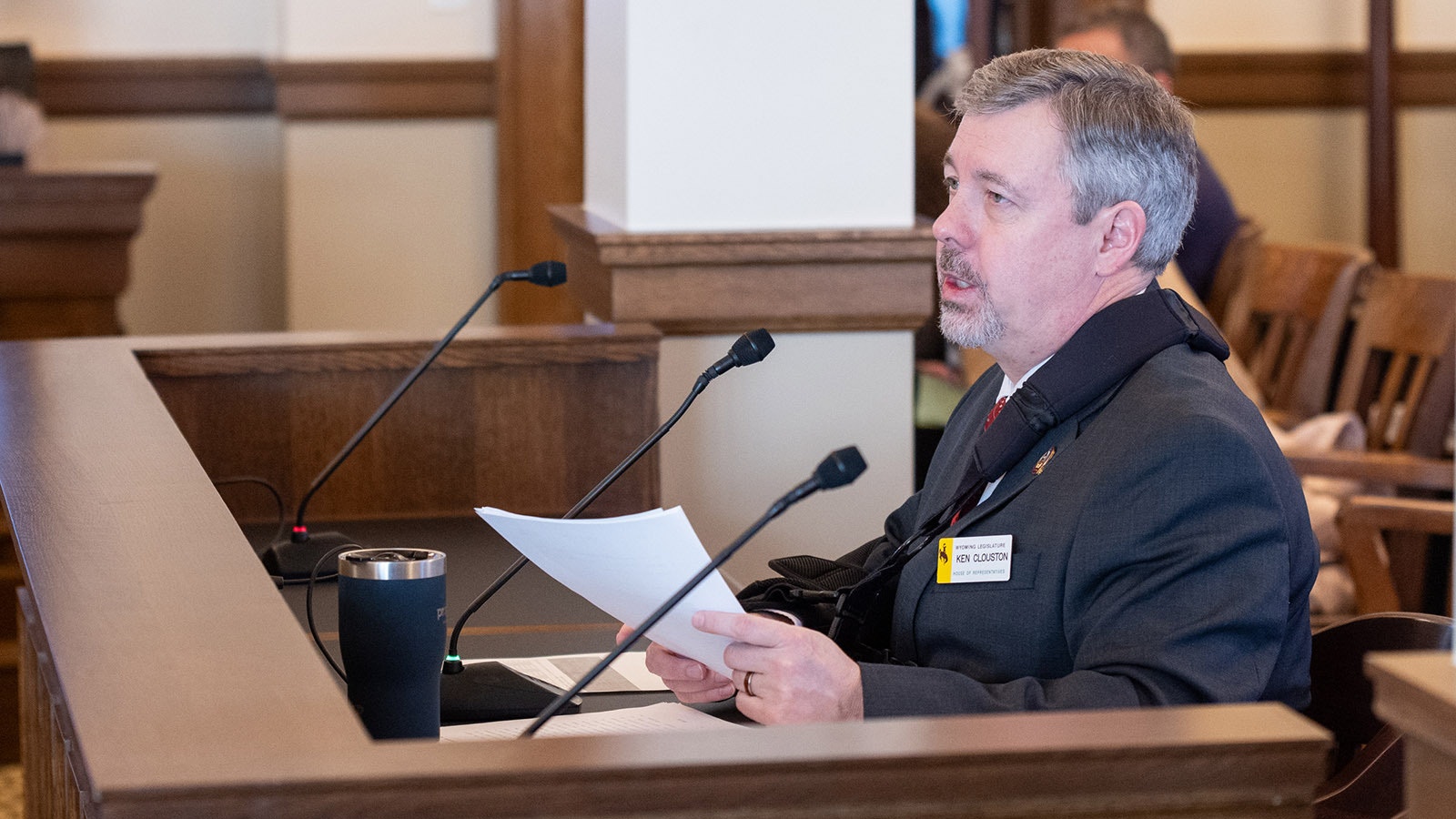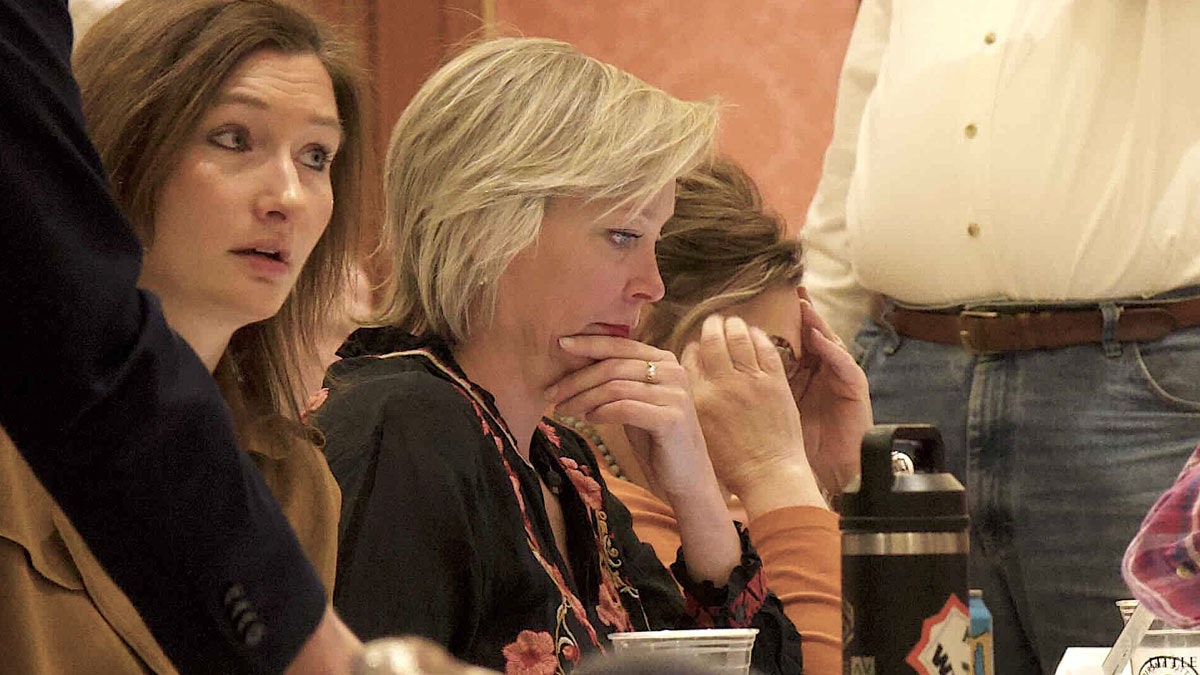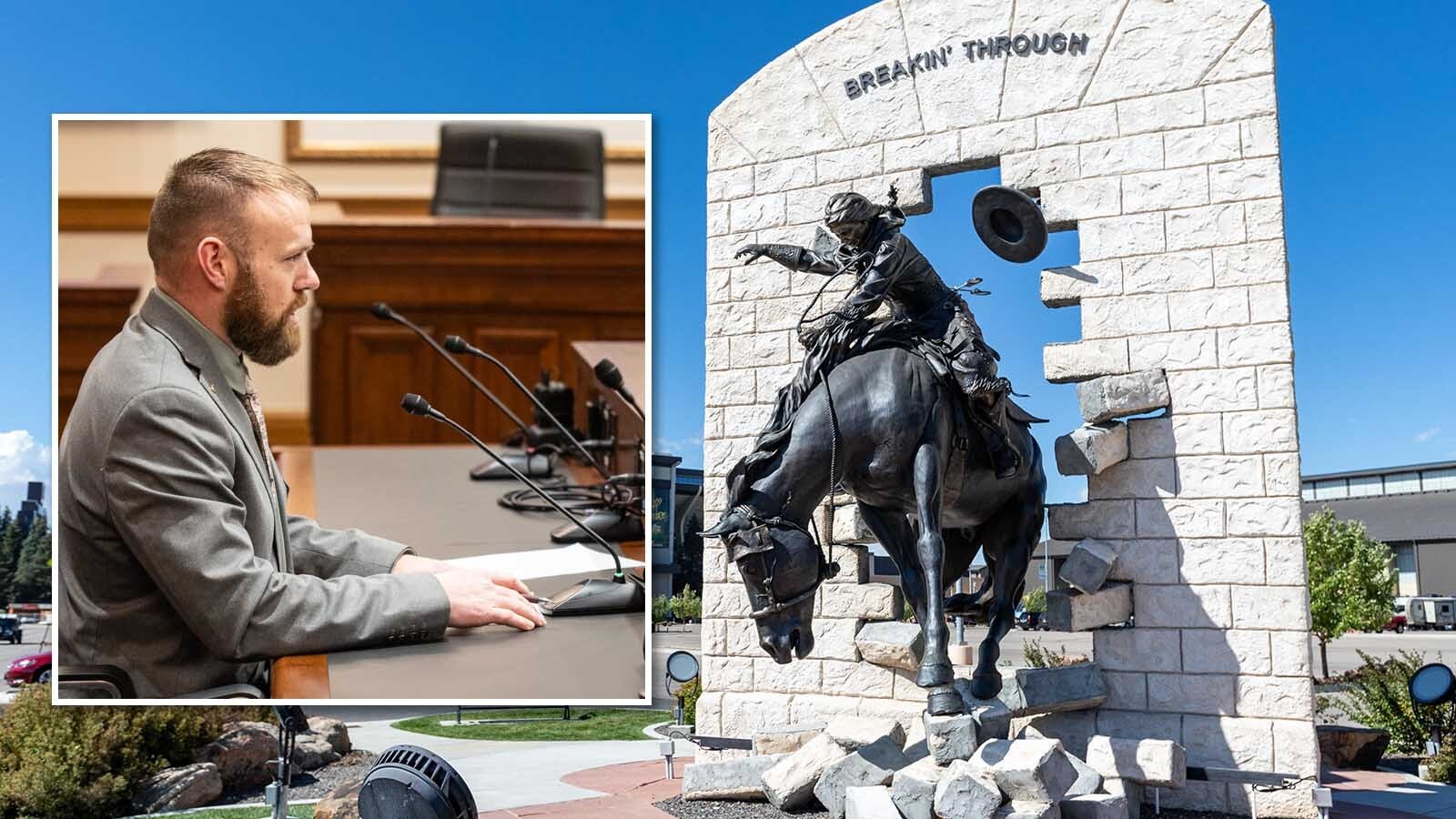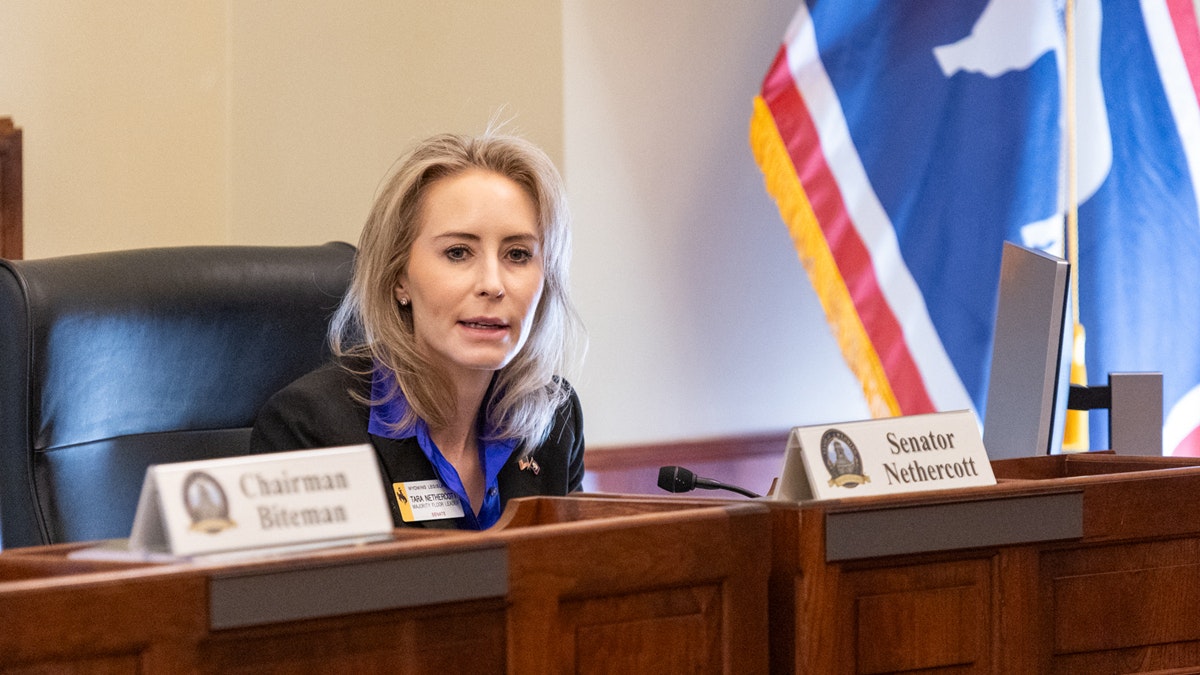State Rep. Ken Clouston, R-Gillette said he brought his Educational Savings Accounts bill as a way to find middle ground on using public money for students to get private education in Wyoming through ESAs for parents to access.
Now, Clouston said he won’t vote for his own bill because it’s been changed too much by the Senate Education Committee on Friday, which passed House Bill 166 on a 4-1 vote.
“I feel like this is a little bit more of federal policy, federal politics, this is not the Wyoming way,” he said.
With the changes made, HB 166 returned the exact form of legislation brought in 2023 that eventually died.
Clouston said he’ll vote against it if it makes it back to the House on concurrence and finds it unacceptable as now approved.
The Brennan Changes
Based on an amendment brought by Sen. Evie Brennan, R-Cheyenne, the committee removed income-based stipulations from the bill that would have determined how much ESA funding a family would receive and capped eligibility at 400% of the federal poverty line.
Instead, the committee increased the maximum amount a family could receive to $6,000 per student and removed all eligibility requirements.
Clouston said he had included this part of the bill as a way to provide a way for lower income families to pursue private education that might otherwise not be able to afford it.
They also removed pre-kindergarten education from qualifying for the program.
Clouston said he already felt like he made a compromise on this piece of the legislation as an earlier and similar bill proposed by the Joint Education Committee covered children as young as 3-years old, so he upped the minimum age to 4. He believes the pre-K portion was essential to allow low income children the same quality of education entering kindergarten as their more wealthy peers.
“Kids learn best early, we just took that away,” Clouston said. “This is a way to help those kids catch up, help Wyoming, get those language skills developed early, we just stripped that away from these families.”
Brennan also brought the amendment that removed the pre-K portion of the bill.
A number of people who testified on Friday warned against this part of the bill, saying that providing ESA money for pre-K education would be difficult to administer and might become nothing more than subsidized day care.
Is It Constitutional?
Sen. Chris Rothfuss, D-Laramie, who was the only member of the committee to vote against the bill, said the pre-K portion was the only aspect he supported and that he now finds the rest of the bills “flatly unconstitutional” because of this and other income-based carve outs.
Sen. Charles Scott, R-Casper, expressed some concurrence and also said he’s concerned the ESA program could simply lead to people who already receive private education to now be subsidized.
“But I don’t like means testing anything to do with basic education, so I have mixed feelings,” he said.
Sen. Cheri Steinmetz, R-Lingle said these constitutional concerns are moot as the ESA funds distributed to parents would be considered contracted services, and thus would not follow under the same constitutional guidelines.
Although the Wyoming law states that public school funds can’t be used toward private education, there is nothing that prevents general funds from funding private education, which is where HB 166 gets its funding through.
Rothfuss said he believes the bill will ultimately not pass into law because this aspect was taken out.
“I was and am lukewarm on this bill to begin with,” he said. “I’m out and against taking the pre-K because I think it’s the only part of the bill that’s supportable and actually helps education in the state.”
Scott and Sen. Bo Biteman, R-Ranchester, suggested the idea of the pre-K portion coming back in its own individual bill.
“Combining two together that I think are different subjects is not what we do here,” Biteman said. “That’s what Washington, D.C. does and you end up getting a bunch of different stuff in a bill that nobody likes but you have to pass.”
Testing Also Removed
Also removed from the bill was a requirement that all participants receive mandatory state testing, making this optional. This was a piece of the bill that had caused particular concern for homeschool parents on Wednesday, who warned against a slippery slope of government regulation on their field of education.
Brennan also brought the amendment to remove the mandatory testing. She said most of the states that have ESA programs leave testing as optional.
“I think it’s reasonable that we don’t need to put on more burdens than other states do,” she said.
Scott and Rothfuss were opposed to this change, seeing it as a form of accountability the state could ensure.
“Removing full accountability seems an unacceptable approach so I’m against that,” Rothfuss said.
‘Wakeup Call’
Clouston approached a few of the Senate Education Committee members after Friday’s meeting adjourned to express his frustration, but received no apologies. He had opposed the ESA bill that was brought last year.
Rothfuss said because of the many compromises made to Clouston’s bill, the legislation had taken the shape of a “little monster.”
Scott said he still sees opportunities for compromise to be made on the bill.
But after the vote was made, he also said he hopes it sends a “wakeup call” to public educators in Wyoming that they need to raise their student’s testing scores.
“We’re seeing way too much evidence that the public school system is failing too many kids,” he said. “This is an opportunity to say to parents, ‘if the public schools are not meeting your needs, this is an option.
“We need to proceed with reforms going down both trails, because otherwise this is a Democratic society, the pressures for private education will grow and grow.”
Rothfuss disagreed, saying Wyoming’s performance scores are for the most part commendable and its schools are some of the best in the country. He and others who testified said they would rather see more funding be given to improve public education in the state than funnel it towards private channels, which Rothfuss said there is no evidence exists showing they are doing better on performance scores than public schools in Wyoming.
“The idea that the districts out there aren’t working hard and doing their best, I think that’s inaccurate,” Rothfuss said.
Leo Wolfson can be reached at leo@cowboystatedaily.com.





